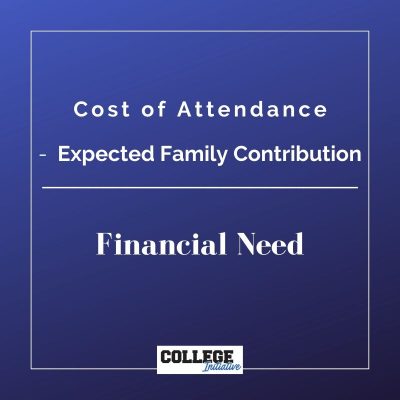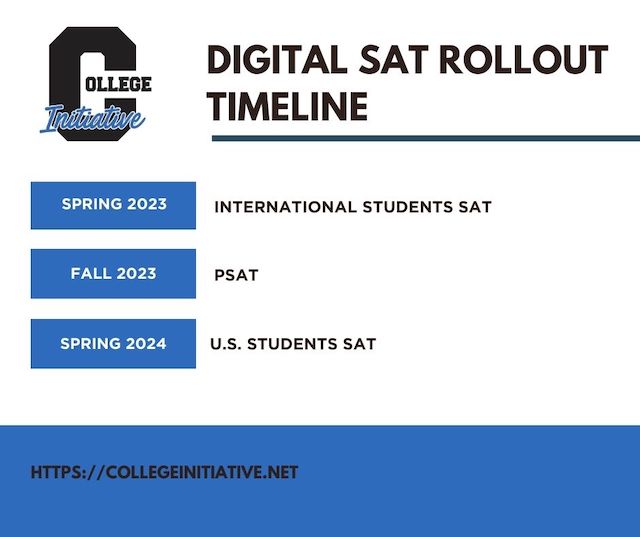What Does My EFC Number Mean, Really?
Last Updated on December 21, 2022 by Jill Schwitzgebel
When your oldest child begins high school, you may never have heard of the acronym, “EFC” before. But by November of their senior year, most families of college-bound teens are not only familiar with the term, they likely know what their EFC number IS. In general, most families feel that it’s too high. But what does that EFC number actually mean?
Let’s start with the basics.
 What Do The Letters EFC Stand For?
What Do The Letters EFC Stand For?

EFC stands for Expected Family Contribution. This is the amount that the government says that you can afford to contribute (for one year, not in total) for your child’s college education. According to FAFSA(Free Application for Student Aid), it “is a measure of your family’s financial strength, and is calculated according to a formula established by law.” It is supposed to be a reasonable estimate of what a family’s financial responsibility for college should be. The reality is that there are some significant shortcomings to the formula and these days, middle income families are often the ones that struggle the most with their EFC.
Check out Confusing College Admissions Terms You Need to Know for other important lingo you should understand during this process!
What Factors Affect Your EFC?
In order to arrive at your EFC, you must first complete the FAFSA form online. The information you provide on the FAFSA, which will include your previous year’s tax return, will affect your EFC. Presuming your student is a dependent, it will include your assets like savings accounts, as well as benefits like social security, and of course, your income. It will also include your student’s savings, benefits and income. It will take into account how many people there are in your household, as well as how many of those people are enrolled in college.
Your EFC will not be affected by money you have saved in 401K or IRA retirement accounts. It will also not be affected by your outstanding debt, from your mortgage to car loans to credit cards.
Your income and household members are easily the factors that will have the biggest impact on the your EFC.
It’s important to know that you have to fill out the FAFSA for each year your child will be in college, using your tax return from the previous year. For this reason, you should anticipate that your EFC number may vary from year to year.
How Long Does It Take to Receive Your EFC Number?
After completing the FAFSA, it generally does not take long before you will receive your SAR (Student Aid Report) electronically. I find that the closer to October 1st that you fill out the FAFSA, the quicker you will receive your report. (Incidentally, the colleges you list on the FAFSA will also receive your SAR. Don’t worry if your student has not sent their application yet!) Your EFC will be listed as a number that can be translated into dollars. For instance, an EFC of $15,000 will be listed as 015000. An EFC of 0 would be listed as multiple zeros.
What Does Your EFC Impact?
As far as financing college – everything. Colleges will use it to calculate your financial need. They will subtract your EFC from the Cost of Attendance and that bottom number will be considered to be your financial need for that college. Some colleges have an institutional formula that they use and will tweak the federal formula in minor ways, and if they have further information, they may even adjust your EFC on your SAR. Most importantly, your EFC will impact how much and what kind of federal aid your family qualifies for. That list includes:
- Federal Subsidized Student Loans
- Federal Perkins Loans
- Federal Work Study Programs
- Federal Pell Grants
- Federal Unsubsidized Student Loans (This isn’t really affected by your EFC, however you DO have to fill out the FAFSA in order to receive it. The interest will accrue while your child is in college)

Some states will also use this information for various state financial aid programs.
Is Your EFC the Amount You Will Pay for College?
Not necessarily. More often than not, when your EFC is less than the cost of attendance for your student, the college still does not have the funds to meet that remaining financial need. Often, families are left with a “gap,” even after financial aid is applied. This is obviously discouraging. There ARE colleges that promise to meet 100% of a family’s financial need, and many more that will meet more than 90% of their need, but the majority of schools can only afford to meet about 50-60% of their students’ financial need. This is when families often look around for academic merit aid and scholarships to help fill that gap.
Can I Appeal My EFC Amount?
Not really, but kind of. You cannot appeal your EFC number with the government. However, if you know that there are factors that the FAFSA just did not take into account when calculating your EFC, you can potentially appeal to the college. Perhaps, you lost your job in recent months and that is not reflected in your previous tax return. Or maybe some major medical expenses have popped up that the FAFSA did not take into account. You may reach out to the college financial aid office and let them know that there are extenuating circumstances that were not factored in to the EFC calculation. It’s ideal to do that earlier, rather than later, giving the college a chance to factor that in when allocating financial aid funds among the incoming accepted students. Expect that the college will likely request documentation to support your appeal.
Update on the Way
Be aware that the 2022-23 school year is the last year that the EFC will be used. Changes are coming to the FAFSA for subsequent years! For more information check out The Simplified FAFSA Changes – The Good and the Bad.
For more information about how colleges will calculate your family’s financial aid, and what your bottom line will be, please visit How Much Does College Really Cost?










hi, my EFC is 0. I am very worry about it. Can you tell me what is it really mean
I believe that means you are in perfect shape for receiving financial aid. As far as I know, a 0 EFC means you have to put $0 towards school—best of luck.
Tyra is correct – it means that the government says that your expected family contribution toward college is $0. Unfortunately, that doesn’t always mean that’s what colleges will ask your family to pay. You may want to check out How Much Does College Really Cost? to learn more about tuition gapping.
my EFC is 3288, what do that mean
Hi Sabrina! It means that the government says that you can afford to pay $3288 toward college costs in the upcoming year.
Jill, my daughter has an EFC is 12847. She is not eligible for federal or pelgrant aid.
My EFC is 053897. What does this mean? Our family income was $187,000 but we have many expenses that effects this income.
It means, like me you will get pretty much no financial aid from any school without scholarships or grants. I did EFC just for fun even though my kids are 8 years away from college, we would already receive no financial aid at all. So if they want a B- rated school, we will need about 600,000 to pay for to educations. So we decide, work until I’m 80 or use our retirement to pay for their school. I’ll be retiring and they can take loans just like I did. I will beg them to focus on the academics, not the fake prestige of Ivy’s.
Steve, unless they manage to fix the system in the next eight years, that’s the smartest approach!
My EFC Is 6642 What does this mean
It means that the government says that you can afford to pay $6,642 in tuition next year. Ideally, you will want to find a college that will fund the gap between your EFC and the college’s tuition, by meeting your need with grants or scholarships.
My EFC IS 004343 what does that mean?
My EFC IS 000192 what does that mean?